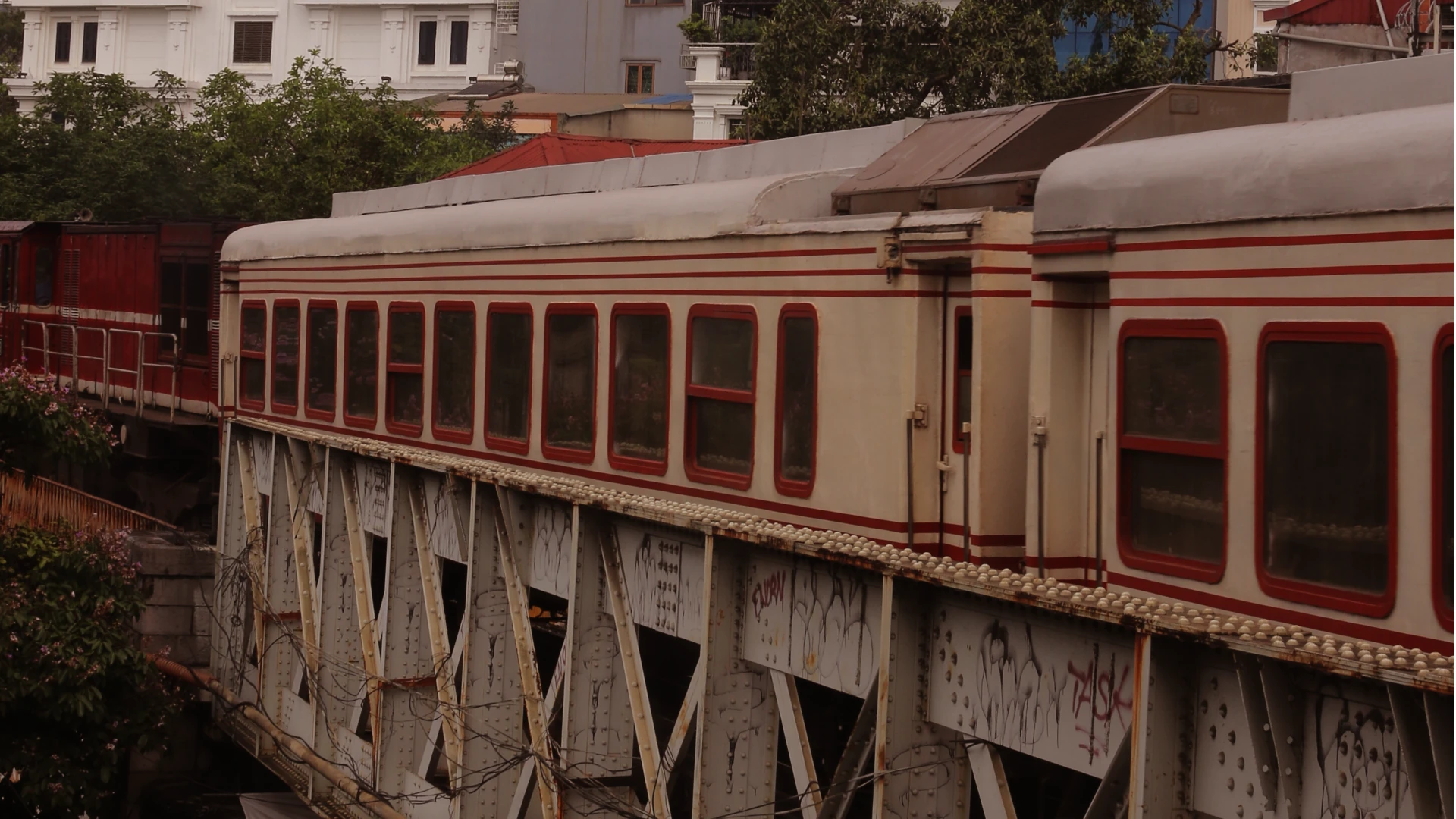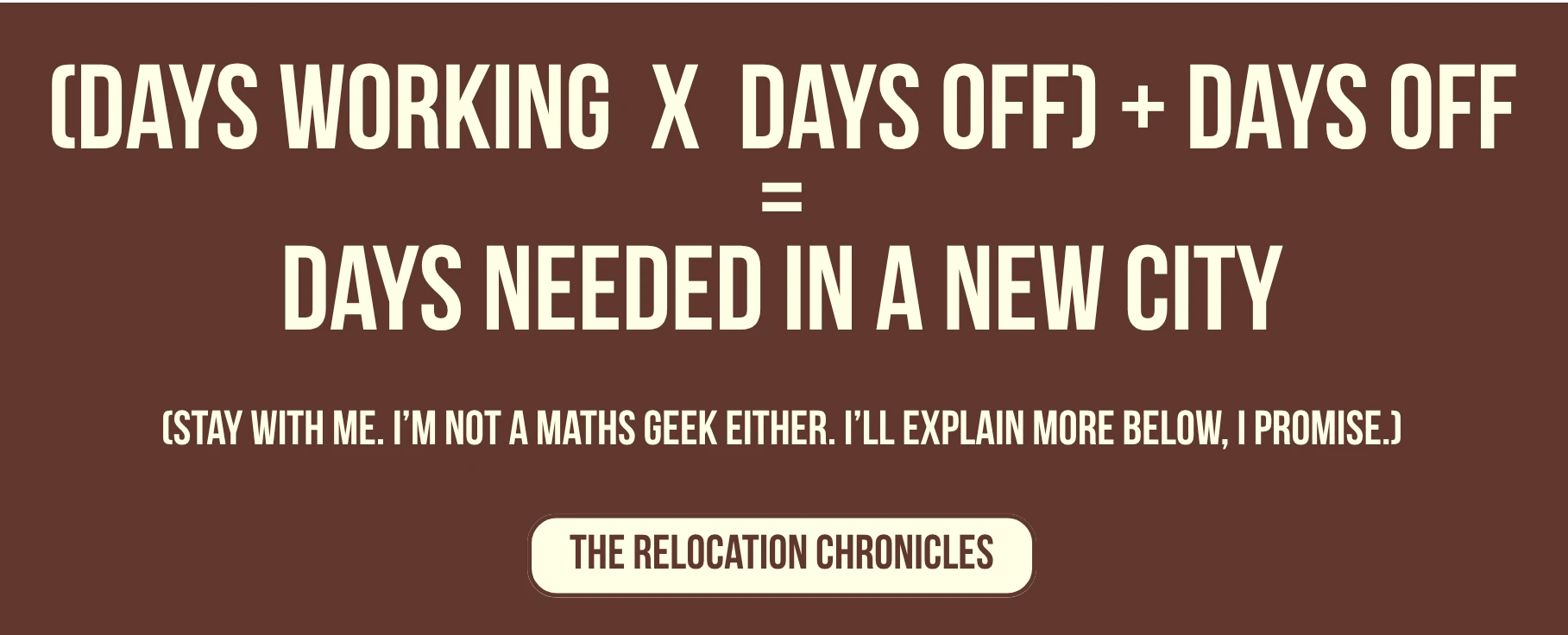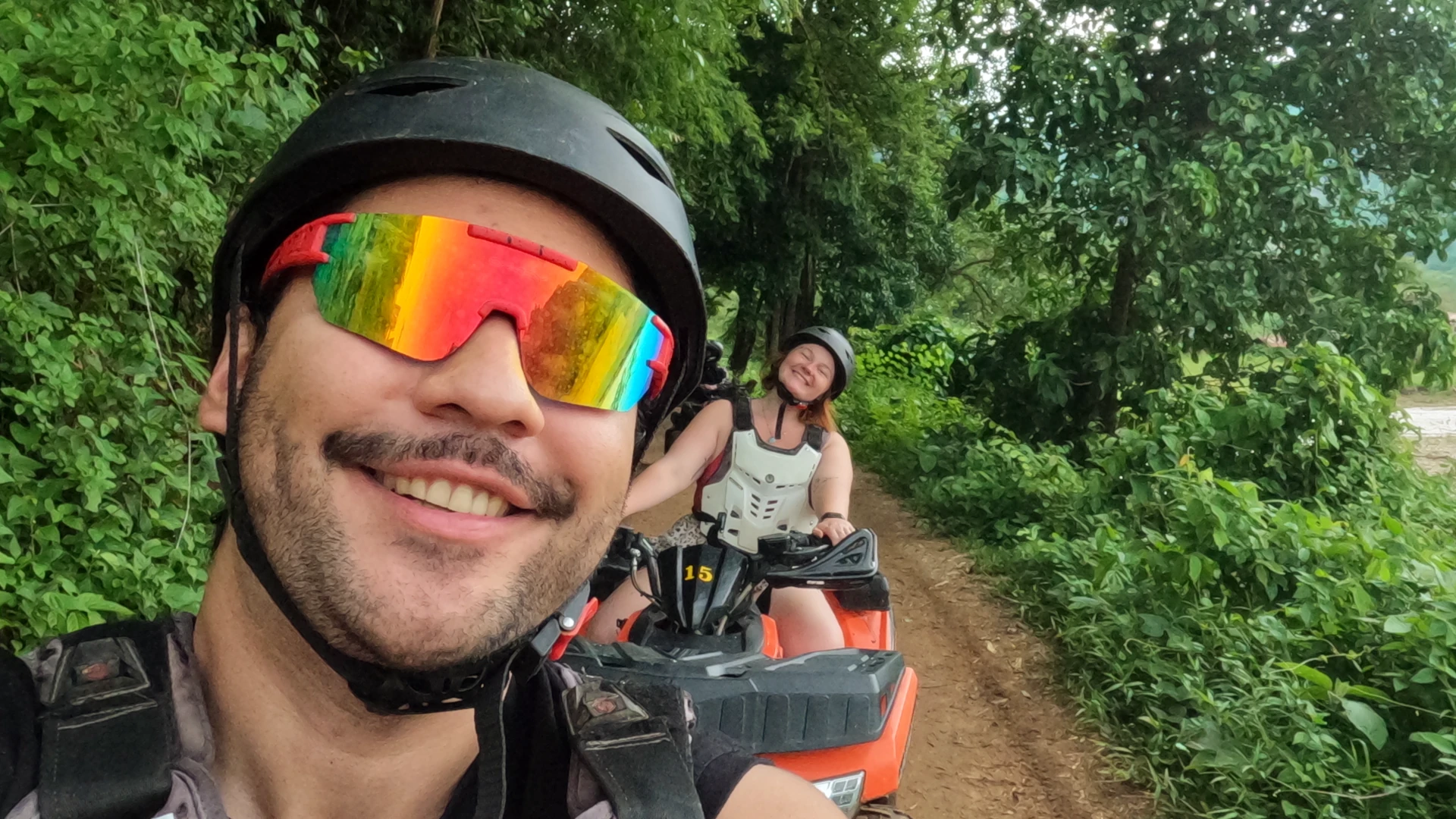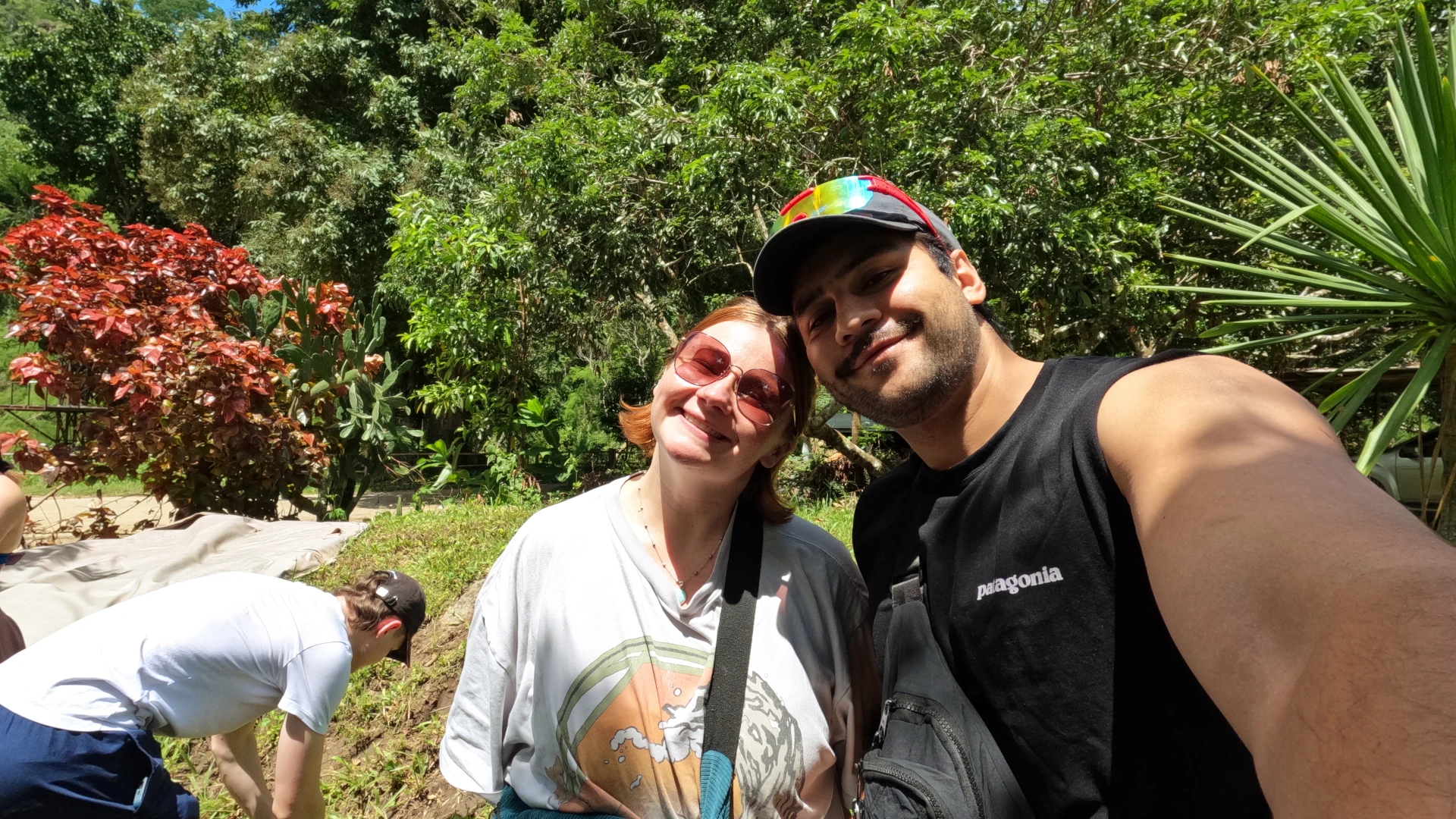Long-term travel: how much is too much forward planning?
Written by Eloise Jones on June 15, 2025
Long-term travel: how much is too much forward planning?
How is it that two weeks in a place you hate can feel like two years, but two weeks in a place you adore can feel like two seconds?
By day three of our time in Hanoi, we were ready to leave.
The honk of motorbike horns haunted us in our sleep; walking anywhere in the Old Quarter felt like a dance with death due to the chaotic traffic, and it was just too bloody hot. Hot, sticky, inescapable heat.
But, thanks to our organised nature and meticulous forward planning, we were condemned to be in the city for another two weeks, confined to our apartment (which actually had a really cool view of the railway bridge, and was arguably the best part of our time there), counting down the seconds until our onward flight.

Fast forward a week. Our onward flight has happened. We’re in Chiang Mai, Thailand, waterfall trekking, ATV riding and white-water rafting. We’re having the time of our lives, eating delicious food and visiting the local markets.
But all thanks to our organised nature and meticulous forward planning, we’re condemned to fly out in three weeks, giving us precious little time to tick off everything on our Thailand bucket list
This is a lesson in balance.
As we learn more about what kind of travellers we are, we’re getting closer and closer to figuring out what balance means to us.
When we first left Australia, we agreed that we didn’t want this to be the kind of trip where we were on the move every three days. We wanted a trip where we could unpack our bags, hang our clothes in the wardrobe, and enjoy the simple luxury of just leaving our toothbrushes in the bathroom.
Until now, we’ve booked our trip with this in mind. Two weeks here, three weeks there, never stopping to really think: is this going to be a two-year two weeks, or a two-second two weeks?
The events of the last month or so have taught us some valuable lessons in how we’re going to organise our trip moving forward, and it all comes down to The Three Rs:
Routine, Research and Refundable options
It’s taken a lot of thinking and some serious trial and error, but we think we’ve finally perfected the Long Term Traveller’s Forward Planning Formula. It looks a little bit like this:

Follow this, and you’re sure to have productive, enjoyable days, perhaps even in cities you’re not too fond of. In Hanoi, we could hardly bring ourselves to leave the apartment to do touristy things because we despised the city so much, but this was also down to lack of planning on our part, which has informed the steps we’re taking now to ensure nothing like this happens again.
Routine
First, identify your weekly routine. For us, it’s simple, and it works like a charm. We have four working days, followed by one day off. Rinse and repeat. It probably sounds like a lot, but we love what we do, and we get to do it from the comfort of whichever Airbnb or co-working hostel we’re staying in.
We punctuate our days with strolls through the old town, dips in the pool, and trips to the gym, which brings us back down to earth and reminds us that this is our life now, not just a holiday.
Having a consistent routine allows us to identify what we need, when we need it, so that we can plan our time in a specific location around it. If we’re feeling a bit burnt out, we’ll use our day off to have a reset. Maybe a beach day or just lounging in front of the TV. If we’ve got our routine set and structured, everything else falls into place around it.
Research
Second, do your research. This is especially useful for slow travellers or digital nomads trying to balance work with exploring. You know you want to visit a particular location, but what are you going to do when you’re there? Will you need a decompression day? A day of doing absolutely nothing?
Figure these days out in advance, then slot them into your schedule accordingly. If you hop online and see that there are only two tours you’re interested in, make sure you’ve allocated yourself at least two days off to accommodate them, then build the rest of your trip around that.
Using the formula above, two days off would equal a 10-day trip.
Days working (4) × Days off (2) + Days off (2) = 10. Easy peasy.
This is particularly useful when it comes to booking flights. Generally speaking, the earlier the better, right? So now we know that 10 days in a particular place is going to be enough for us to see and do everything we want to, we can confidently book our flights in advance, saving us time and money.

Refundable options
Third, pick the refundable option. Whether it’s accommodation through booking platforms, or travel experiences on sites like GetYourGuide, they usually offer the choice to pay a slightly higher price in return for free cancellation or a 100% refund.
If it’s in your budget, we’d suggest picking these options every time. The price difference will probably be cheaper than if you picked the non-refundable option and really needed to cancel, and this gives you wriggle room if you hit an unexpected travel burnout wall.
Flexibility is a traveller’s most underrated superpower. Some of our best adventures have come from spontaneous recommendations by other travellers: tours or places we’d never even heard of before. Staying flexible allows us to make space in our trip for these spontaneous travel moments.
Bonus R: Realise that you can’t do everything and be everywhere
The world is huge with so much to explore. There are endless cities, all with an endless list of things to do, so the chances of being able to do absolutely all of them are pretty low. Plan, prioritise and compromise with yourself to avoid travel fatigue and burnout.
Remember: the whole point is to enjoy yourself.
Do you have any stories from overplanning your trips? Maybe fun things that wouldn’t have happened if you hadn’t underplanned? Please let us know. We love hearing your stories from the road.
Catch you next time!
All our love,
Eloise & Ramiro Xxx

Chiang Mai, Thailand.
